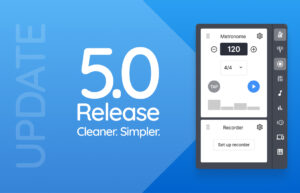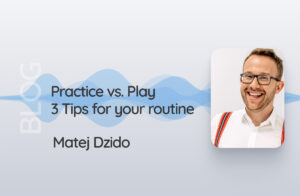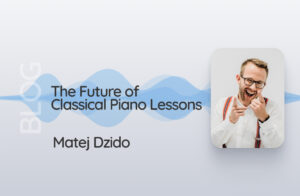It is undisputed that music has an important meaning for personal development. Humans need music to be happy. Many studies have looked into this and shown that making music has benefits for children and their development. Making music together promotes social skills and perception. Last but not least, making music has a reward effect that should not be underestimated, which has a motivating effect and ensures lasting fun. When a child begins to learn an instrument, we, the teachers, always explain this to the parents as well. In this blog post, I would like to shed some light on why music is so important, especially for children.
Does music make you smarter?
In 2003, Harvard neurologist Gottfried Schlaug found in his study “Brain Structures differ between Musicians and Non-Musicians” that the effects of music instruction can be seen in the brain. After 15 months of music lessons, children showed structural changes in the brain related to improvements in motor and auditory skills. Adult professional musicians also showed a greater gray matter volume than the brains of individuals who did not play a musical instrument. These findings show that the brain changes and adapts according to activities. This clearly demonstrated how music lessons increase and strengthen connections in the brain. (Source: https://www.jneurosci.org/content/23/27/9240 )
There are clear differences in whether a person only hears music or actively makes music himself. It is undisputed that learning to play an instrument or to sing trains breathing, improves fine motor skills, and increases concentration and endurance. Actively making music is a very effective way to stimulate the brain in various areas. Dr. Anita Collins explains this very clearly in her TedTalk: https://ed.ted.com/lessons/how-playing-an-instrument-benefits-your-brain-anita-collins.
What else does music promote?
- Cognitive skills (e.g. memory, counting, symbolic thinking)
- emotional competencies (feeling, emotional expression)
- motor skills
- social competencies (community experience, cooperation)
- language development
- hearing
- sense of rhythm
From the very beginning, it is important to encourage the joy of musical discovery in the classroom and at home, and not to focus solely on the idea of performance. This phase, which leads to learning and playing, is an important learning stage. At the age of five to six, children can begin to play an instrument. But even before that, it is important to make music. With early musical education, children can gain their first musical experiences, develop an understanding of music, and gather the basics for instrumental or singing lessons.
What does music support learning?
Music supports
- logical thinking; by linking different areas of the brain
- the ability to communicate; verbally and non-verbally
- emotionality; because music moves us
- Self-discipline; through practicing and staying busy with a certain task for a longer period of time
- Motivation to learn; through making music together, through better concentration and endurance
When children make music themselves, it promotes
- personality development, because they can get to know themselves better through the experience of learning to play an instrument.
- The creativity, because they create, interpret and feel something of their own.
- The self-confidence, through learning success in performances and overcoming challenges in lessons.
- The concentration and receptivity.
- The perseverance in learning.
It’s never too late to start learning an instrument
But even for adults, it’s never too late to start. It is definitely possible to learn to play an instrument, even at an advanced age. Music lessons showed improvements in memory and other cognitive functions in many studies with adults.
Music professor Jennifer Bugos (University of South Florida in Tampa) studied how piano lessons affected adults aged 60 to 85. After just six months, the adult piano students’ cognitive functions improved. The group that received no lessons did much worse in comparison. Jennifer Bugos is an absolute advocate of learning an instrument at an advanced age. Even as an adult beginner, one can clearly benefit from learning an instrument in addition to having fun making music.
The most important thing for everyone is: that making music and taking lessons must be fun. Through music, many things can be discovered and experienced. An instrument or singing can be learned in the most diverse forms of instruction and constellations. We wish every child and adult to make this experience. That’s why: have fun making music.
About the author

Aloisia Dauer is a violinist, teacher at the Musikschule Grünwald e.V., violin consultant for the Bavarian Sing- und Musikschulen and founder of Your Music Mind. She completed her education with excellence at the Mozarteum University in Salzburg with Prof. Igor Ozim and Prof. Harald Herzl, where she was already accepted as a young student. Her great passion is chamber music. She performs with renowned artists at international festivals and concerts. In addition to her concert activities, she teaches her violin class and as a lecturer at international master classes. She also works with educational companies such as doozzoo by C. Bechstein, Ernani GmbH and with music publishers. In 2019, she received an award from BR-Klassik as “Bavaria’s most popular music teacher”.
Your Music Mind was created with the desire to create a platform around the topic of practising, with learning guides such as the practising diary, blog, videos, interviews with musicians and workshops, in order to give music students and parents practical practising strategies for practising at home and to support them in their learning. So that students enjoy making music and practising!











